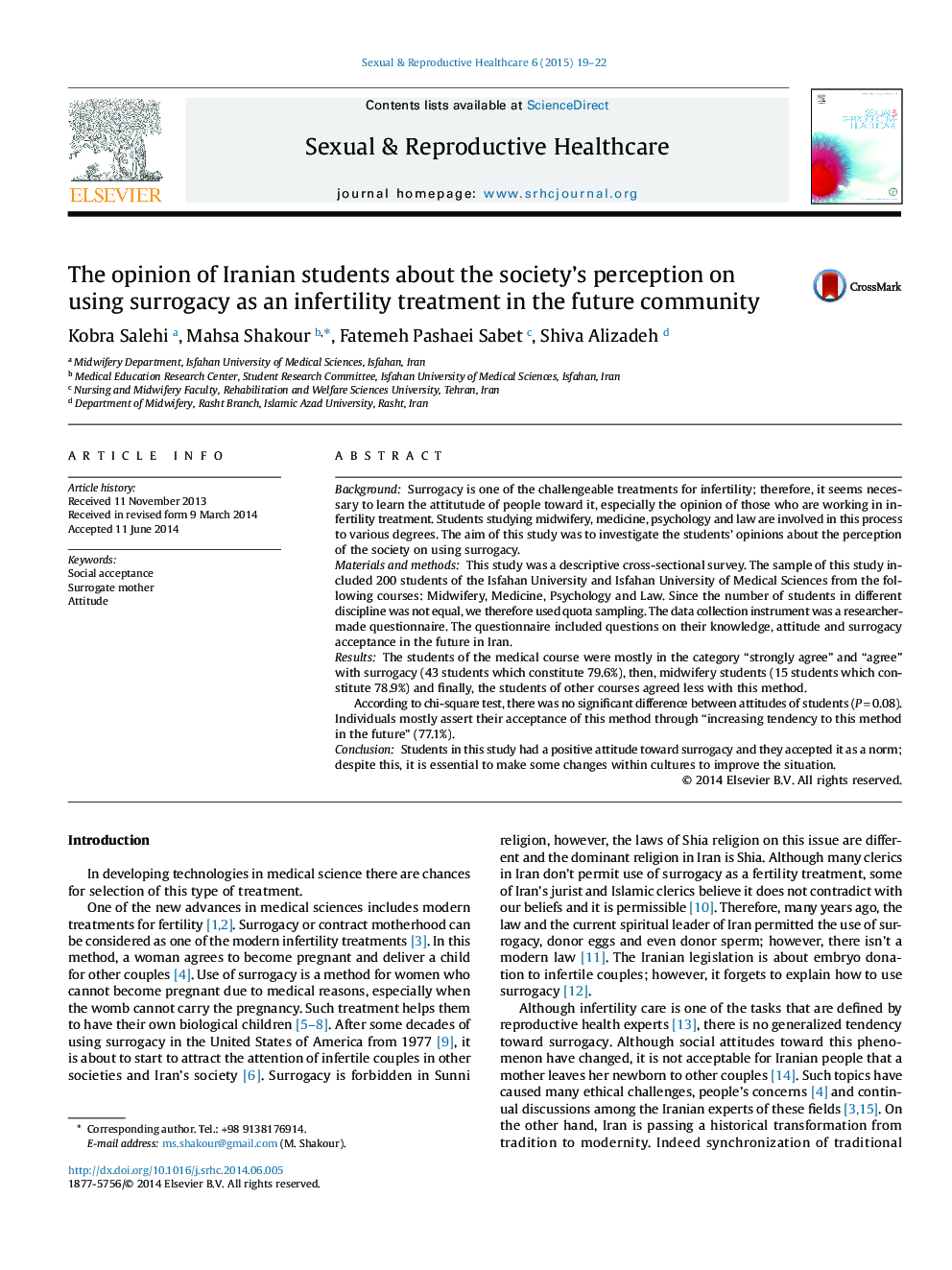| Article ID | Journal | Published Year | Pages | File Type |
|---|---|---|---|---|
| 2635934 | Sexual & Reproductive Healthcare | 2015 | 4 Pages |
•Surrogacy as a new treatment for infertility is acceptable for related occupations.•Students thought surrogacy will be acceptable for public and prevents divorce.•Students didn’t accept that this method is better than adoption for infertile couples.•Students’ opinions toward acceptance and the feasibility for surrogacy in future are positive.
BackgroundSurrogacy is one of the challengeable treatments for infertility; therefore, it seems necessary to learn the attitutude of people toward it, especially the opinion of those who are working in infertility treatment. Students studying midwifery, medicine, psychology and law are involved in this process to various degrees. The aim of this study was to investigate the students’ opinions about the perception of the society on using surrogacy.Materials and methodsThis study was a descriptive cross-sectional survey. The sample of this study included 200 students of the Isfahan University and Isfahan University of Medical Sciences from the following courses: Midwifery, Medicine, Psychology and Law. Since the number of students in different discipline was not equal, we therefore used quota sampling. The data collection instrument was a researcher-made questionnaire. The questionnaire included questions on their knowledge, attitude and surrogacy acceptance in the future in Iran.ResultsThe students of the medical course were mostly in the category “strongly agree” and “agree” with surrogacy (43 students which constitute 79.6%), then, midwifery students (15 students which constitute 78.9%) and finally, the students of other courses agreed less with this method.According to chi-square test, there was no significant difference between attitudes of students (P = 0.08). Individuals mostly assert their acceptance of this method through “increasing tendency to this method in the future” (77.1%).ConclusionStudents in this study had a positive attitude toward surrogacy and they accepted it as a norm; despite this, it is essential to make some changes within cultures to improve the situation.
